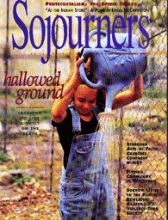If a man is rich and strong anywhere,
it must be on his native soil.
Here I have been these forty years
of learning the language of these fields
that I may better express myself.
-Henry David Thoreau, The Dispersion of Seeds
When Thoreau penned the above lines in 1856, he had spent the last several years of his life studying the fields and forests just outside his hometown of Concord, Massachusetts, "learning their language" and coming to know intimately their biological properties and idiosyncrasies. Having been significantly influenced by his long and close friendship with the transcendentalist Ralph Waldo Emerson, and by a recent meeting with poet Walt Whitman, Thoreau's method of observing the changes in these places was not purely objective.
He was perhaps too enamored with the profound mysteries that he encountered, for example, in the seed-laden down of the local fireweed, or in the propensity for pitch-pine seedlings gradually to alter the face of their environment. He was also skeptical of a science that promoted intellectual understanding at the expense of human imagination, so his tendency to appeal now and again to a sense of the divine in the world around him is why he is best remembered as a literary or philosophical figure, and not as a scientist.
Nearly a century and a half later, one wonders how future generations will assess the current work of Wes Jackson, another "eco-linguist"-an observer of fields and sorter of seeds, philosopher and spontaneous theologian. Classically trained in the empirical method, especially pertaining to plant genetics, Jackson has in the latter half of his life become wary of the rigors of the discipline, and especially of the philosophical assumptions that ground Western science itself.
In the mid-1970s, during his tenure as a young biology professor at California State University in Sacramento, Jackson took what
Read the Full Article

